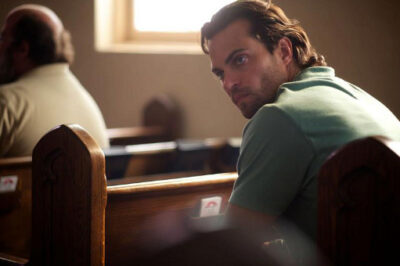Cory Brand is a Major League Baseball All-Star. But off the field, he’s haunted by memories of his past, and his life is spinning out of control.
After a DUI and team suspension, Brand’s agent sends him back to his hometown to rebuild his reputation—and volunteers him to coach a youth baseball team. At the same time, Brand enters a recovery program that has a strong faith emphasis.
Brand is the main character in the new movie Home Run, which opens Friday.
Not many men have the skills and opportunities to play professional baseball, but other challenges in Brand’s life are common to millions of dads. He’s facing the reality of his own selfishness while seeing a need to become a grown-up, responsible man and father. And one major obstacle is his painful childhood and the wounds of his relationship with his dad, who is deceased.
In a scene where Brand has just learned that he didn’t make the All-Star team, he’s confronted with some of the deeper issues related to his “hurt inside.”
Have you made peace with your father’s influence in your life? Do you have the nagging feeling that what you do is never quite good enough because of how your father treated you? Do you carry a hurt inside that your father is partially responsible for creating? This reality is played out powerfully in the movie.
If your dad was a negative influence in your life, that can be a huge hurdle to your becoming a great father for your own children. This is such a common and daunting challenge for men that the theme of reconciling your past runs through much of our work with fathers.
In Forming a Lifelong Bond: For Dads of Infants, which was recently updated and made available as an eBook, Ken Canfield includes a chapter about this challenge. It’s so foundational that every man coming into the role of fatherhood would do well to work through these issues.
As Ken writes: “Some men carry years of anger around with them. It just sits there, waiting for the right time—or, more accurately, the wrong time—to erupt and splatter everyone around them. The other men live in confusion: a paralysis of the soul. A man in this confusion lives his life without confidence, refusing to trust anyone, emotionally shut down. He has the attitude: don’t talk; don’t feel; don’t trust. His kids can’t get in, and he can’t or doesn’t want to come out.”
As dads, we need to realize that our ability to be good fathers is directly related to our relationship with our own dads. As dads, we have an inheritance. It is what we got from our own fathers, and it’s what we’ll give to our children unless we choose to do differently.
Here are three suggested guidelines.
1. Recognize your father’s influence. Identify his impact on you, and get as specific as you can. Inventory his influence in specific areas. How did he show affection, carry out discipline, handle communication, teach values, etc.?
2. Resolve the relationship. There needs to be an event in the relationship that acts as the signpost for a new direction—whether it’s a face-to-face discussion, a session with a third party or a visit to his gravesite (as Brand experiences in the movie). This is a time to talk about the relationship and any unresolved feelings, confess your own shortcomings and possibly extend forgiveness.
3. Relate to your father in new ways. You now move on and seek to honor his role in your life—and that might not be easy; he may not cooperate. Still, you are doing everything you can as his son, and that allows you to move on in a positive way and be the father your children need.
I encourage you to get the eBook and read more on each of these steps.
Action Points for Dads on the Journey
- Ask your child’s mother or a sibling for feedback on ways you are like your father and ways you’re not like him.
- Learn about your father as a son. What kind of fathering inheritance did he receive from his father, and how did shape the kind of father he was for you?
- Write a letter to your dad—even if you don’t plan on sending it—where you describe his influence on you and what you appreciate about him.
- Tell your children something positive you learned from your father.
Have you been through a reconciliation with your dad? How did it look? What did you learn that has made you a better father? Join the discussion by leaving a message either below or on Fathers.com’s Facebook page.
Carey Casey is the CEO of the National Center for Fathering, a nonprofit organization dedicated to changing the culture of fathering in America by enlisting 6.5 million fathers to make the Championship Fathering Commitment. NCF believes every child needs a dad they can count on, and it uses its resources to inspire and equip men to be the involved fathers, grandfathers and father-figures their children need. Subscribe to Casey’s weekly email tip by clicking here: I want tips on how to be a great dad who loves, coaches, mentors and inspires my children.








Leave a Comment
You must be logged in to post a comment.